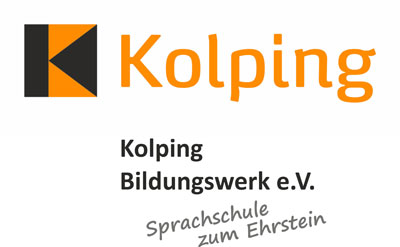Studying in Germany
From Language School zum Ehrstein to a German University
| What universities and degrees are there in Germany?
In Germany, there are 371 public universities. Institutions of higher learning are divided into three types:
In addition to state financed universities, there are more than 90 private universities in Germany. The following degrees can be obtained:
|
|
| Who is allowed to study in Germany?
In principle anyone from a country who has attained a secondary school degree that entitles them to study. However, not all secondary school degrees entitle students to begin studies at the university directly (s. Studienkolleg). Those who have acquired their higher education entrance qualification in a country belonging to the EU, in Liechtenstein, Iceland, Norway or Switzerland are not required to take any further tests in order to study in Germany. However, this does not apply to subjects in the arts (music, fine arts, film). Applicants for these subjects must take an aptitude test or present samples of their work. |
|
| What is a Preparatory College (Studienkolleg)?
If your school leaving certificate does not qualify you to study in Germany directly, you must first attend a foundation year at a Preparatory College (Studienkolleg). The Studienkolleg offers a two semester course of studies that is aimed at preparing you for your studies at the university. There are both private and public Studienkollegs. Most Studienkollegs offer specialization courses in the following fields:
In order to attend the Studienkolleg, you have to pass a language test at the level of B2+, because German is a mandatory subject and the language of instruction in all of the courses. Apart from that, you may also have to pass an entrance exam in your field of specialization. After two semesters of studies in the Studienkolleg, you take final examinations in which you prove a level of knowledge in the relevant subjects which is comparable to the German Abitur examinations (Feststellungsprüfung). In addition, you must also do the German language proficiency test for admission to the university (s. DSH). This test can also be done in the Studienkolleg. |
|
|
What should I pay attention to when I send in my application? Once you have made your decision what to study at a German University, the university service at our language school will begin. |
|
| How good does my German have to be?
To be accepted to and study at a German university, you must pass a language test at the level of C1. To reach the level of C1, you will have to take part in a standard language course lasting around one year with 20 units of instruction per week. Thereafter, you can choose between three different tests:
Sprachschule zum Ehrstein offers preparation courses for all of these language tests. |
 |
 |
What does studying in Germany cost?
Preparation for studies:
During your studies:
|
|
What does it cost to living in Germany? Living costs for food, accommodation, clothing and extras in Germany are about average for the European Union. As a general statement, it can be said that living costs in smaller cities will be less than in larger cities. In cities in the eastern part of Germany living space is generally less expensive than in the west. On average, students in Germany need about 800 Euro per month Note: Foreign students studying in Germany are required to present a “proof of financial resources” amounting to 8000,- EUR. This proof may be provided in the following ways: a proof of assets from the parents, a security amount on a locked account at a German bank, a bank guarantee, a scholarship or a guarantee from a person living in Germany. Please contact the German embassy about information concerning the required proof of financial resources. Without this proof, your plans to study in Germany may not be possible. |
|
| Where can I apply for a scholarship?
There are many institutions in Germany where foreign students can apply for a scholarship. You can find addresses in the data bank of the DAAD (German Academic Exchange Service) under www.funding-guide.de |
|
Do I need a Visa?
If the German authorities in your country require a conditional admission letter from a German university before granting a visa, please book our University Service Plus and send us your application documents. We will make the applications for you at up to three German universities. If you meet the formal criteria, you will receive from a university a certificate of validation of your previous education (comparable to a conditional admission letter) which will enable you to apply for a visa. |
|









